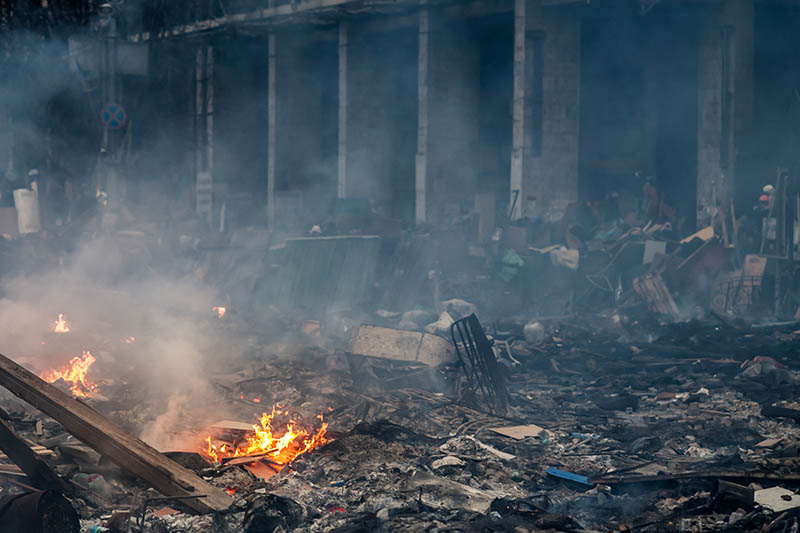(Justin Vaughn, Editor, Options Trading Report)
The U.S. labor market is rotating toward a post-pandemic world, with a steady stream of adults joining the labor force and employment approaching levels before Covid-19 began its rapid spread. Employers added 670,000 workers to their payrolls in seven months, the Labor Department said Friday. The jobless rate fell to 3.8% from 4.0% a month earlier, edging closer to the 50-year low of 3.5% hit just before the pandemic. Wage growth ‘cooled,’ a bit, a sign that a nationwide labor shortage might be easing as employers fill in lower-wage positions that had long been dormant. Big states and cities in recent days have lifted some of the remaining Covid restrictions, which could further boost business and hiring. “We are getting a preview of what the post-pandemic labor market can look like,” said Daniel Zhao, senior economist at Glassdoor. “The fundamentals of the labor force remain strong,” he added.
The Dow Jones Industrial Average fell 179.86 points to 33614.80. The S&P 500 Index dropped 34,62 points, or 0.79% to 4328.87, while the tech-heavy Nasdaq Composite fell a more significant 224.50 points or 2.78%, ending at 13313.44. The smaller, value-packed Russel 2000 Index was off 31.51 points, or 1.55%, finishing the week at 2,000.90. Year to date, the Dow is down 7.49%, the S&P 500 is off 9.18%, and the Nasdaq Composite is down 14.9% the past two months.
Putin’s War….Sanctions Stun Russia’s Economy. Western nations ‘dropped’ economic sanctions of historic scale on Russia that are crippling every component, hitting the financial sector especially hard. Two weeks ago Russia’s economy was bustling. Its citizens could buy MacBooks, and Toyota’s, and use all their credit cards to the fullest extent, with a stable ruble. Now they (all) are in a financial ‘bind,’ one that affects every Russian in serious ways. With the ‘unplugging’ of the world’s 11th-largest economy, Russia faces a repeat of one of the most painful episodes in its post-soviet history- the financial crisis of 1998, when its economy collapsed overnight. In the decades that followed Russia ‘earned’ the way back into the ‘good-graces’ of financiers in New York, London, and Tokyo. It is being undone at warp-speed and will not be easily put back together. The ruble has lost more than a quarter of its value and is virtually useless outside of Russia, with Western firms refusing to exchange it or process it. Moscow’s stock exchange was closed for the fifth straight day on Friday (3-4-22). One lifeline that still connects Russia’s economy to Western markets is its supply of energy. U.S. lawmakers are pressuring the White House to fully expand sanctions to include energy payments, which would ‘sap’ Russia of its largest sources of income, at $240 billion, received last year. Timothy Ash, an emerging-market strategist at BlueBay Asset Management, wrote in a note to clients Monday: “From Fortress Russia to Rubble Russia in a week.” It’s time to look for another vodka, Stoli (Stolichnaya) is a dead issue.
Spiraling Commodity Prices…..soaring to record highs, led by Oil, Wheat, Natural Gas, Aluminium, and Palladium, all heavily supplied by Russia and Ukraine. With both countries at war, the supply chain is severely affected and in many cases…dried up. Global supply-chain constraints have led to worldwide shortages even before the ‘war.’ Abnormal weather conditions are also hurting crop yields in agricultural regions. Members of the International Energy Agency, including the U.S., agreed to release 60 million barrels of oil reserves. Meanwhile, oil and gas poured into Europe from Russia–energy is not sanctioned as yet. OPEC+ met and stuck to its output plans. Hopefully, energy sanctions will follow shortly. As oil soars…gasoline soars.
Bitcoin Is On The Move…Russia’s invasion of Ukraine is pressuring equities, and ‘scrambling’ Federal Reserve plans to raise rates. Through it all, Bitcoin has been rising up around 13% to near $39,500 since fighting broke out. Bitcoin purchases in Russia and Ukraine have picked up as demand for stable coins is at an all-time high as financial institutions are not functioning. “The crisis might hasten efforts to develop sovereign digital currencies, set rules for stable coins, and coordinate efforts to track global crypto flow. For now, crypto isn’t a “reliable and scalable workaround” for governments aiming to bypass sanctions,” says Cornell economist Eswar Prasad. He adds, “If it becomes more of a threat, governments will surely crackdown.”
RUMBLINGS ON THE STREET
Tina Fordham, Geopolitical Strategist, Barron’s “It’s a reminder to investors who assume that everything happens out of economic self-interest and commercial imperative, that actually sometimes there are bigger forces and bigger questions at stake,” Ms. Fordham, commenting on the impact of the war in Ukraine.
A senior Biden administration official, quoted Monday, in the Wall Street Journal “Fortress Russia will be exposed as a myth,” referring to Moscow’s efforts in recent years to armor its economy against Western sanctions including by amassing $630 billion war chest of reserves at its central bank.
Elvira Nabiullina, Governor of the Bank of Russia, WSJ “The conditions for the Russian economy have altered dramatically,” she stated. “The banking sector is now experiencing a structural liquidy deficit,” referring to a shortage of easily-accessible money critical to keep the financial system running.
Jane Foley, head of foreign-exchange strategy at RoboBank WSJ “There is very little liquidity and consequently you get this gapping in the price, and you’re not getting any real reflection of where the ruble would be,” said Ms. Foley, addressing the falling-ruble.
THE NUMBERS – Barron’s
120 – Number of rubles to the dollar on Friday. A week ago, the ruble traded at 83 to the dollar.
50% – Decline in Russian government bonds on Monday, as foreign investors sold off.
$4.4B – The amount of winning bids in an auction of offshore wind farms on the Atlantic coast.
24% – Percentage of U.S. hourly workers who say they quit their jobs because they couldn’t get enough hours.

